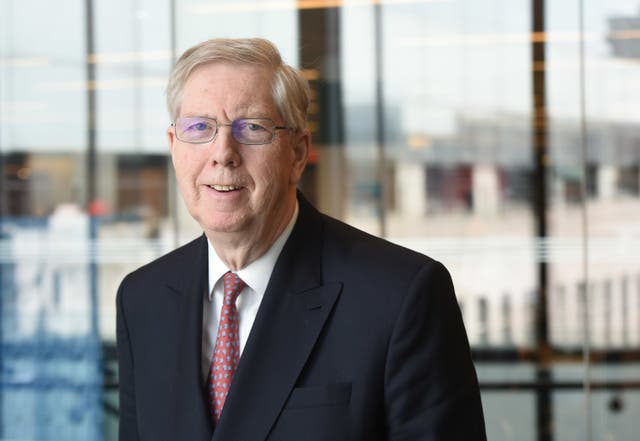
The cost of continuing to provide free TV licences for over 75s would “fundamentally change the BBC”, the broadcaster said, as it launched a consultation on the issue.
The Government-funded scheme, which provides free TV licences to older viewers, comes an end in June 2020.
BBC chairman Sir David Clementi said the Board, which will make the final call, “does not underestimate the significance of the decision, its implications for the BBC and its audiences”,

Options could include the BBC copying the Government scheme and paying for it.
“But”, it writes, “that could cost around a fifth of our budget – the equivalent to what we spend today on all of BBC Two, BBC Three, BBC Four, the BBC News Channel, CBBC and CBeebies.
“That would mean over 75s would not have to pay, as at present, but we think it would fundamentally change the BBC because of the scale of service cuts we would need to make.”
Another option could be scrapping the free licence fee for over-75s.
“This would mean the BBC would not have to make significant cuts to BBC services, but would have an impact on those over 75s, particularly poorer pensioners, who currently do not pay,” it says.

The BBC says it could also reform the scheme in various ways including discounting the cost of a licence fee for older people, raising the age from 75 to 80, or introducing means-testing.
The broadcaster said that it was “not backing any particular option over another today”, as it opened a three-month consultation.
Its Board “hopes to make a decision by the summer”.
BBC director-general Tony Hall said: “This is an important decision.
“We have set out a range of options – each has merits and consequences, with implications for the future of the BBC, and for everyone, including older people.
“We need to hear views to help the BBC make the best and fairest decision.”
Sir David Clementi said: “We will listen to their views and balance all the options and arguments before making a decision.”
Find out more about our consultation on TV licences for older people, read the full document and have your say: https://t.co/qr4qN1asNJ pic.twitter.com/ks3ctDVc6y
— BBC Press Office (@bbcpress) November 20, 2018
Age UK is opposing any form of charge, saying there “are still significant numbers of older people living on very low incomes who would genuinely struggle to pay the licence fee”.
Its charity director Caroline Abrahams said: “There are two million people aged 75-plus, one-in-two of whom is disabled and one-in-four of whom view the television as their main form of companionship. For many others, including those who are chronically lonely… the TV is a precious window on the world.”
She added: “The BBC took on responsibility for the concession as part of a broader deal with the Government in which they received some significant benefits.
“Now it is their responsibility to appreciate the very significant role that television plays in many older people’s lives and the damaging consequences of watering the concession down or removing it from them.”
All the options under consideration, except for continuing the free licence fee for over-75s, “would introduce significant practical difficulties and create unfairness for different groups of older people.”
Shadow media secretary Tom Watson called for the Government to “step in and save TV licences for the elderly”.
“The Government should never have privatised welfare policy in this way. Labour opposed this move from the start,” he said.
Some #wednesdaywisdom for you – do you have a friend or family member over the age of 75? They can apply for a FREE TV Licence. To find out more, head over to: https://t.co/7HgZ6Yvyj1 pic.twitter.com/IkTFwSA15c
— TV Licensing News (@tvlicensingnews) June 27, 2018
“The prospect of elderly people losing their free TV licences makes a mockery of the claim that austerity is over,” he said.
It is expected that free TV licences would cost £745 million a year by 2021/22.
Economic consultants have said the cost of providing a free BBC service to over-75s would exceed £1 billion a year in a decade’s time.
The corporation took over the cost from the Government of providing free TV licences for over-75s as part of its charter renewal negotiations.
A spokesman for the Department for Digital, Culture, Media and Sport said: “We know people across the country value television as a way to stay connected with the world.
“The BBC will take on responsibility for free licences for the over-75s from 2020 and it is right that they’ve confirmed no decisions will be taken until the public have been fully consulted.
“We’ve been clear that we would want and expect them to continue with this important concession.
“Ultimately it is the BBC’s responsibility to ensure its substantial licence fee income is used effectively to deliver fully for UK audiences.”


Comments: Our rules
We want our comments to be a lively and valuable part of our community - a place where readers can debate and engage with the most important local issues. The ability to comment on our stories is a privilege, not a right, however, and that privilege may be withdrawn if it is abused or misused.
Please report any comments that break our rules.
Read the rules here